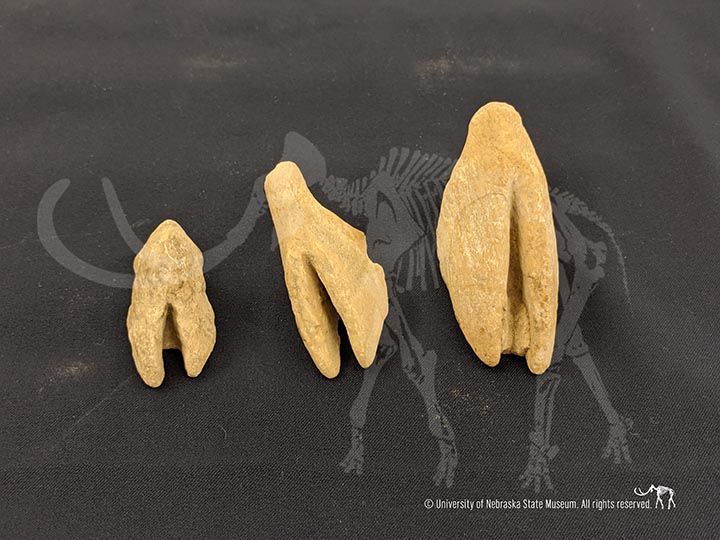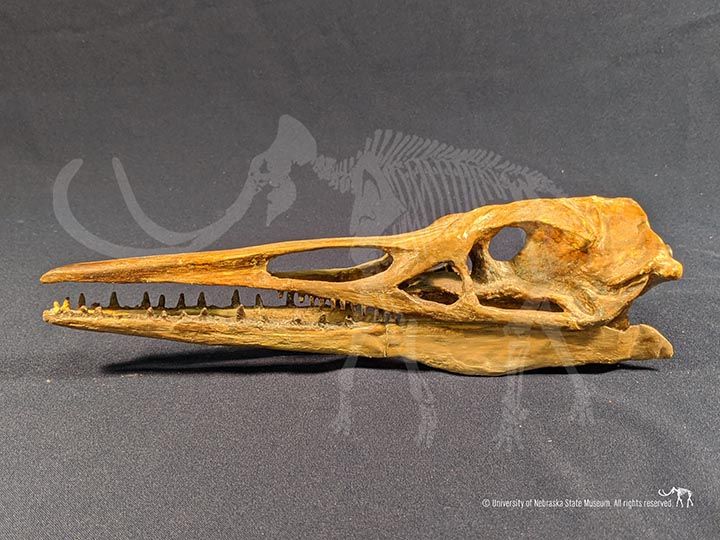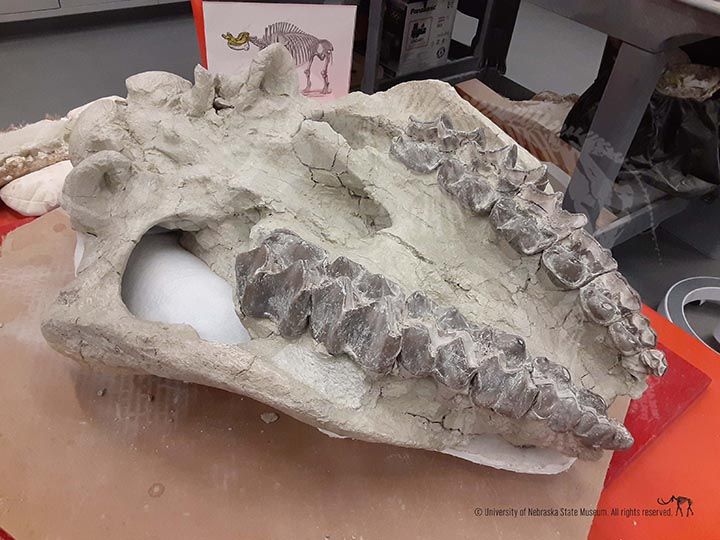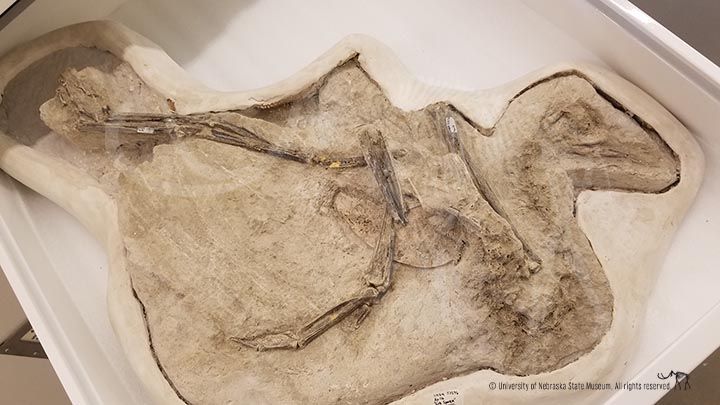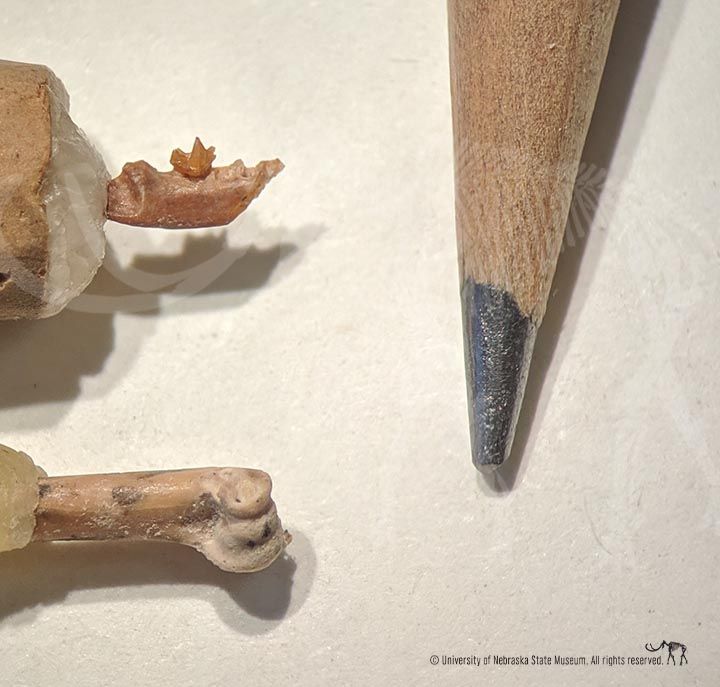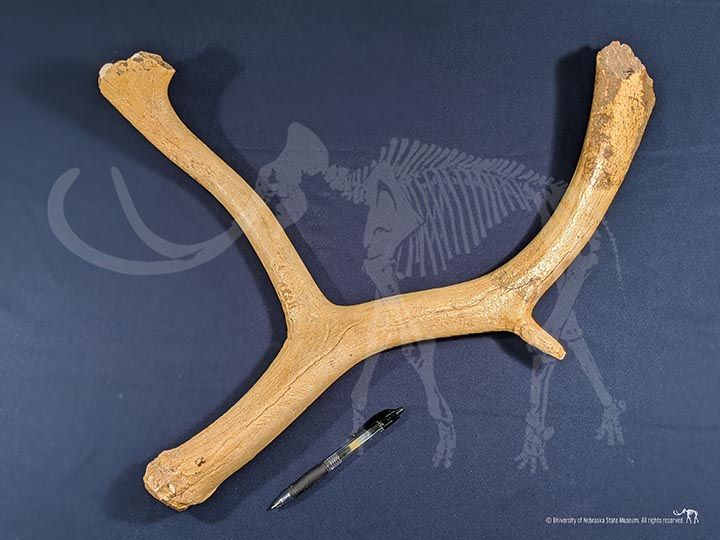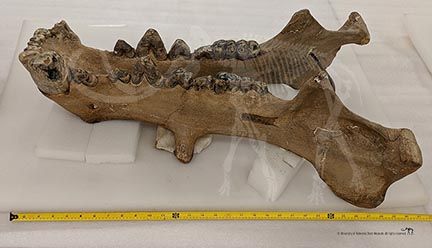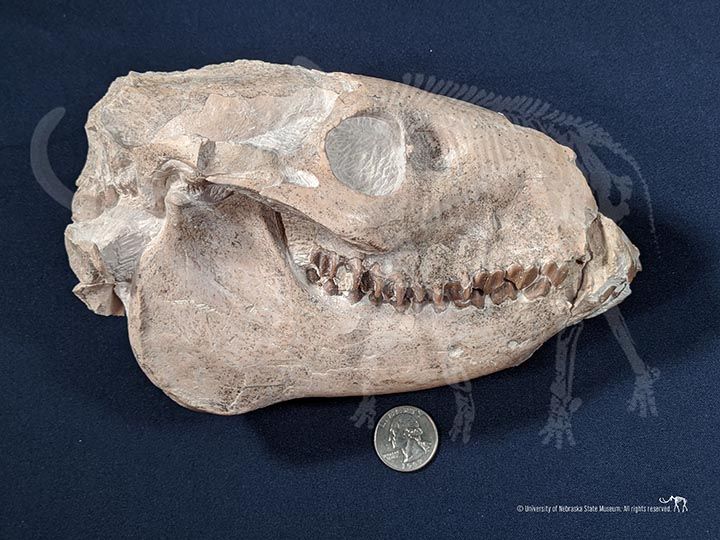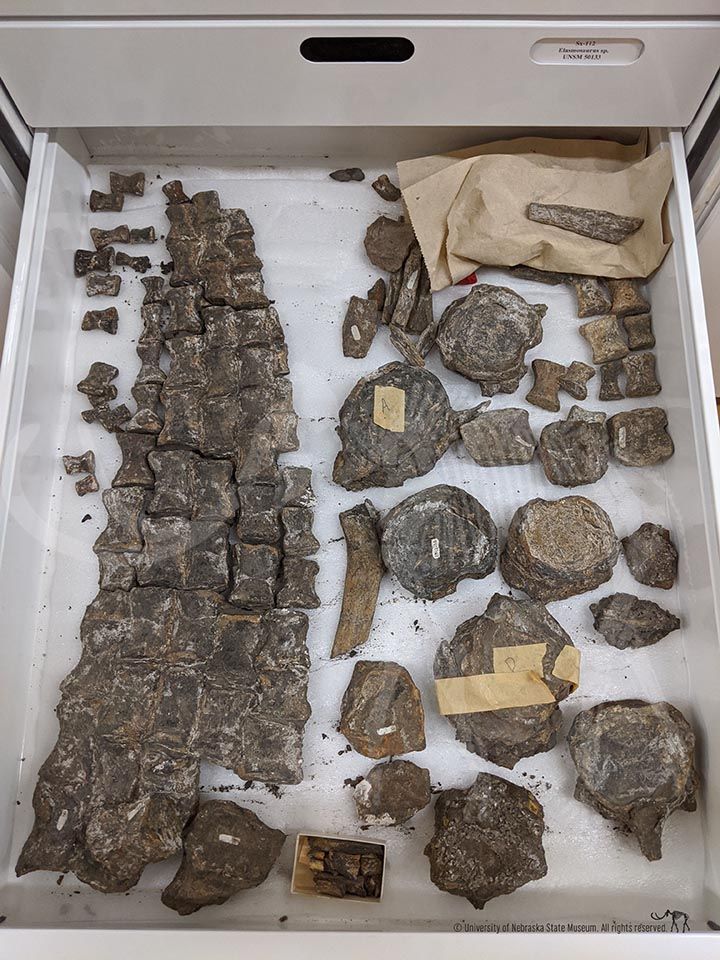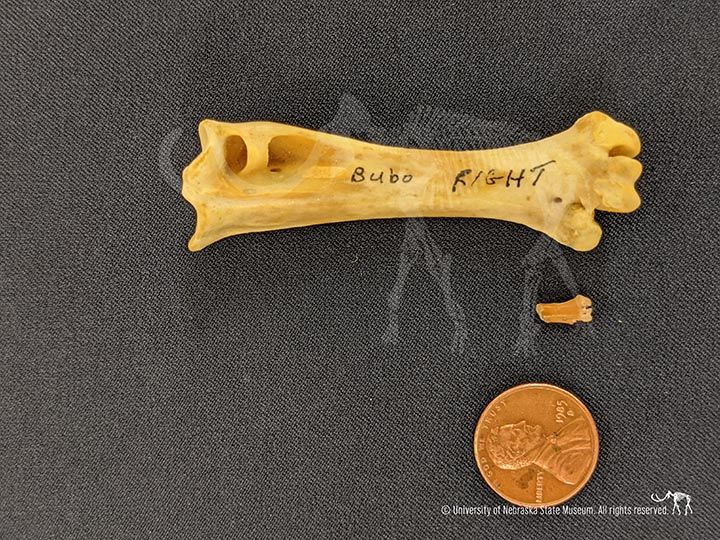
Science & Culture | Vertebrate Paleontology
Explore the Collection
The Museum's collection of vertebrate fossils is an important worldwide resource.
The Fossil Collection
More than one million numbered specimens have been added to the collection since 1891 when E. H. Barbour, Director of the Museum from 1891 to 1941, made his first trip to the rich fossil fields of western Nebraska. More than 85,000 specimens have been cataloged systematically, of which 152 are primary types and several thousand others are figured and/or described. Later Cenozoic (late Eocene through Pleistocene) mammals from Nebraska and adjacent states make up the bulk of the collection, but holdings of Paleozoic fishes, Mesozoic marine reptiles, and Cenozoic lower vertebrates are also significant.
Large mammals, especially proboscideans, ungulates, and carnivores, were the primary targets of the Museum's early collecting efforts and, as a result, enormous quarry samples of some taxa were amassed from dig sites, especially during the late 1930s under the auspices of the Works Progress Administration. In more recent years, screenwashing techniques have been applied to many classic sites and the resulting samples of "microvertebrates" help round out an already unusually complete record of the evolutionary and environmental history of the central Great Plains during the past 35 million years. Most of the collection derives from within Nebraska but significant Pleistocene assemblages from New Mexico caves and a substantial late Cretaceous sample from Bug Creek, Montana, are also available.
The Museum's fossil preparation lab has had a long history as an active partner in the research program, applying modern field and laboratory techniques and conservation principles to fossil preparation, collections care, preservation, and data recovery.
Below are a few specimens from UNSM Collections. Follow us on Facebook to see our team share more fossils from the collection every #fossilFriday.






